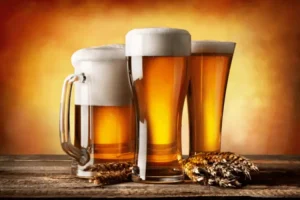
If you or someone you know is struggling with alcohol consumption, https://ecosoberhouse.com/ it’s important to seek help and support from a medical professional or addiction specialist. It’s not advisable to use terms like «social alcoholic» to downplay or normalize problematic drinking behavior, as this can hinder efforts to address the underlying issues and seek appropriate treatment. But a family history or current family alcohol or drug abuse problems may influence the start of personal drinking problems. Sometimes a drinking problem is triggered by major life changes that cause depression, isolation, boredom, and loneliness. Alcohol misuse—which includes binge drinking and heavy alcohol use—over time increases the risk of alcohol use disorder (AUD).
- If you find yourself relating to even a few of these statements, stop drinking, socially or otherwise, and seek the help of an addiction treatment specialist.
- There is no defined pattern of use for people who identify as social drinkers.
- Disulfiram has been around for a long time and it works by deterring drinking.
I’m not sure what to say when people ask, «Why aren’t you drinking?»

Heavy drinking and displaying other unhealthy drinking patterns may signify substance abuse. Regardless of the circumstances in which alcohol is consumed (i.e., at a party or solo), in the United States drinking is considered a part of a healthy lifestyle when it’s done in moderation. Although being a social drinker is accepted in society, it’s easy to slip into alcohol dependence over time. If you’re unable to stop drinking on your own, there is help available. Alcoholism is considered the state you reach when you can no longer control your alcohol intake.
Occasional Drinker vs. Social Drinker vs. Drinking Problem
The risk of harm typically increases as the amount of alcohol consumed increases. Social drinking occurs in many forms — from small events like birthday parties or meeting for a drink after work, to large-scale events like Oktoberfest or a New Years’ celebration party. There is no set amount of alcohol that determines a social drinker, but the CDC characterizes alcohol use as moderate drinking if a female consumes one drink per day, or a male consumes two drinks per day.
How Long Does Alcohol Stay in Your System?
Each of these recovery programs has members who are HFAs as well as lower functioning alcoholics. Meetings are held in person as well as online and are typically listed on their social drinking problem websites. It is most important for alcoholics to realize that they are not alone and that millions of sober alcoholics now have fulfilling lives without drinking.

Recognizing a drinking problem or the signs of a drinking problem is a courageous step. Whether the concern is for oneself or a loved one, understanding the next steps can bring comfort and clarity. Sana’s approach in Stowe, Vermont, combines luxury and cutting-edge care in a serene, private setting, ideal for healing and rebuilding a life free from addiction.

Addiction Destroys Dreams, We Can Help
The term «social alcoholic» is not a recognized medical or psychological diagnosis. For years, the implication was that an alcoholic could never drink again. However, today there are programs which allow for a certain level of controlled drinking, with appropriate support. Many people have relearned moderate social drinking through these approaches. A common question among people who struggle with alcohol use drug addiction treatment is “do I really have to stop drinking permanently?

Is it Possible to Relearn Social Drinking After AUD?
If any of these signs seem familiar to you or a loved one, reaching out for help is the next best step. A sudden change in life, such as a divorce, death, or job loss, can lead to excessive stress. Some people turn to alcohol as a way to cope with major life changes. Calls to our general hotline may be answered by private treatment providers. We may be paid a fee for marketing or advertising by organizations that can assist with treating people with substance use disorders. Sarah Allen Benton, M.S., LMHC., LPC, is a licensed mental health counselor and author of Understanding the High-Functioning Alcoholic.
